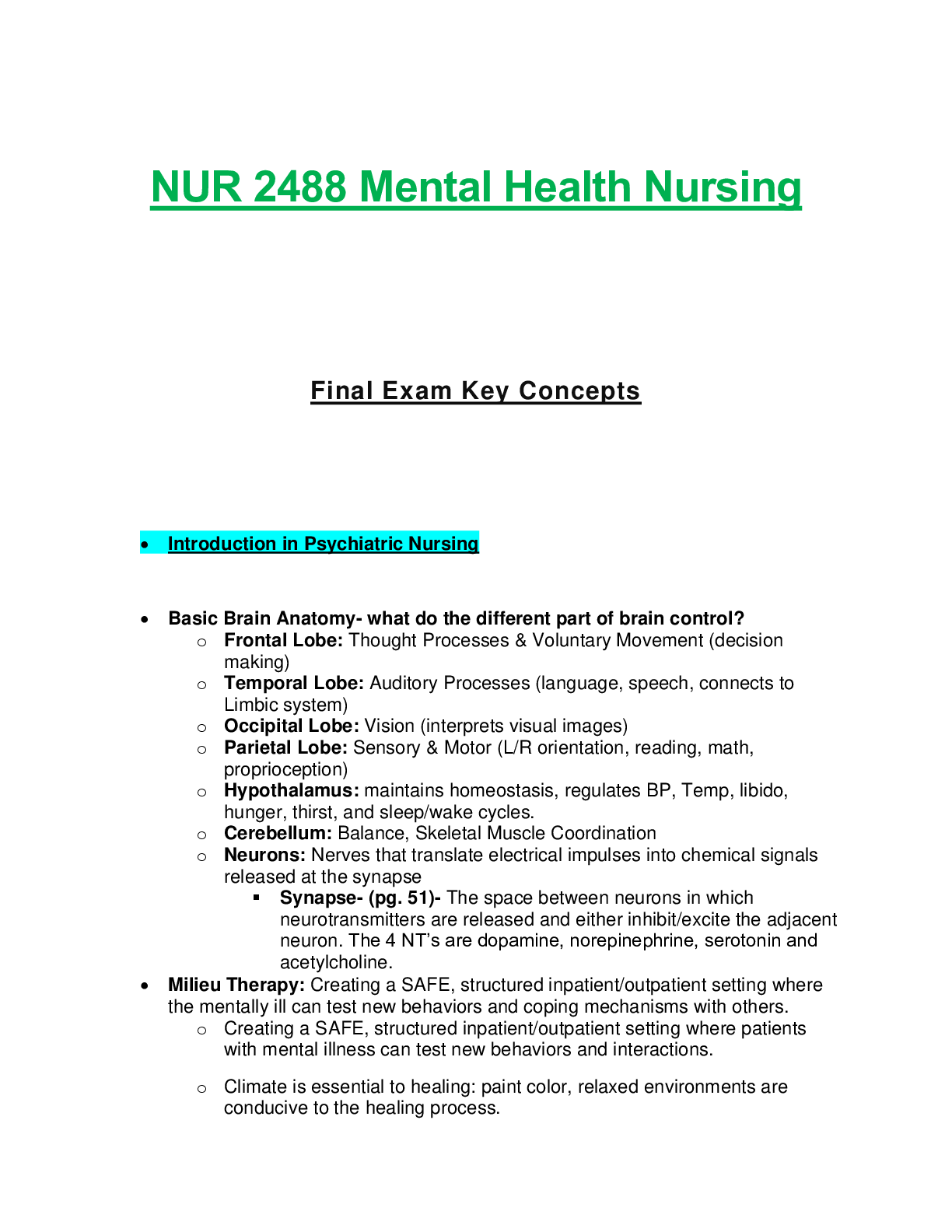*NURSING > STUDY GUIDE > Psychiatric and Mental Health Nursing The Craft of Caring (All)
Psychiatric and Mental Health Nursing The Craft of Caring
Document Content and Description Below
This is the most important chapter of all the chapters in this book. Not because it is the opening chapter, providing a ‘way in’ to the rest of the text, but because it invites you – the reade... r – to think about nursing. • What is nursing? • How do nurses do nursing? • Why do they do this rather than anything else? • How important is nursing to the welfare and recovery of people with any serious problem in human living?a The answer to this last question is straightforward, if confusing. • Psychiatric–mental health nursing is the most important discipline in mental health care worldwide. • However, it is also the least important. • Why the paradox? NURSES: STILL INVISIBLE AFTER ALL THESE YEARS When people have a ‘mental breakdown’, the Hollywood film drops them into the arms of a brilliant, humane and invariably caring psychiatrist.1 Nurses, by contrast are invisible or, as de Carlo2 noted, they occupy an ‘aberrant, secret, and dangerous world’ where their role is mainly that of ‘custodial companionship’. If Nightingale was the icon for physical care nursing then, Nurse Ratched, from ‘One flew over the cuckoo’s nest’, has become the mental health nursing icon (see http://en.wikipedia.org/wiki/Nurse_Ratched).3 Real life tells a different story. In hospital or community care, psychiatrists are few in number, and only fleetingly present at the care face.b In the ‘real world’ nurses are a I use the term ‘problem in living’ since all forms of ‘mental illness’, ‘psychiatric disorder’ or other ‘mental health problems’ either involve or result from the person’s problem in living with themselves, other people or life in general. b Nurses often talk about the ‘realities’ of their everyday work as the ‘coal face’, implying that this is hard and dirty work. However, nurses have to ‘get close’ to the people in their care, becoming a recognizable face that the person comes to trust. In that sense, it might be more realistic to talk about the ‘front line’ of nursing as the care face. Reflection If you are a psychiatric or mental health nurse or are studying to become one, ask yourself: • Why did I want to become a psychiatric–mental health (PMH) nurse? • What did I expect that I would do for or with people as a nurse? • To what extent are my original expectations of nursing, proving to be a reality? If you are a member of another health or social care discipline, or someone with experience of mental health services, either as a ‘patient’, family member or friend, ask yourself: • What is psychiatric–mental health nursing? • What do these nurses do with or for the people in their care? • In your experience, what do they not do that they should be doing? the only caring constant.3,c Despite the media hype, when people talk about their ‘recovery’ from mental illness, they rarely name doctors, psychotherapy or even drugs. Instead, they talk about support, comfort, presence and other ‘human’ stuff,4 which they believe sustained them on their recovery journey. They thank people who offered extraordinary human support, who nourished their souls. Apart from friends, families and other ‘patients’, invariably they thank nurses.This should not surprise us since ‘psychotherapy’ originally meant the ‘healing of the soul (or spirit)’, and nursing, originally meant ‘to nourish’. Some years ago, I had the privilege of spending time with Pat Deegan,d the famous American psychologist, survivor and key proponent of ‘recovery’ in mental health. We discussed her original ‘breakdown’, when she was diagnosed as a ‘chronic schizophrenic’ at 20 years of age and told ‘not to hope for much’. Her recovery really began when she was discharged from hospital to a boarding house, where she roomed with ‘a bunch of hippies’. This ‘assortment of oddballs’ supported her as she wrestled with her demons.‘They treated me like a person, not a patient’, Pat recalled. Their caring acceptance appeared to kick start a process in which Pat began to care for, and also accept herself, for who she was. Although she went on to become a psychologist, rather than a nurse, her work emphasizes the social construct of nursing:5 how to support people in facing life’s challenges; how to help them grow and develop as people. For Pat Deegan, what ‘made a difference’ was being accepted as ‘just another human being’, albeit with some problems in living. Those around her ‘nursed’ her in the most traditional manner, helping her to live and grow, from day to day. Ironically, this caring attitude was miles away from the kind of ‘care’ she had known as a hospital ‘patient’. There are, however, many encouraging signs that nurses are beginning to reclaim ‘genuine nursing’ with all its human and social values. WHAT IS PSYCHIATRIC AND MENTAL HEALTH NURSING? In 2007, my colleague Poppy Buchanan-Barker and I tried to clarify the concept of psychiatric–mental health nursing and what it involved in practice.6 We asked nurses from different countries: ‘what is psychiatric and mental health nursing?’ and ‘how do PMH nurses do nursing?’ To help them provide a brief answer we supplied examples of two-line definitions of medicine, psychology and social work, drawn from the Internet, and asked a range of practitioners, leaders, researchers and professors – to define and describe their discipline in simple language. Most replied saying that they needed ‘time to think about this’. Some needed weeks, others needed months, to come up with an answer. A few said such a definition couldn’t be done, or, for various philosophical reasons, shouldn’t be done. Almost all admitted that these were difficult questions.e However, lay people were more forthcoming: • Nurses help people; • Nurses relieve a person’s distress; • Nurses help people get through the day, and through the night. • Nurses help people ‘deal with stuff … all sorts of stuff ’.f However, behind these obvious, if not commonsense descriptions, lies a wealth of hotly disputed debate concerning what is (or is not) nursing; the proper focus of nursing;7 and the often subtle difference between care and treatment. Maybe the nurses we involved in our study were trying to define psychiatric–mental health nursing as a professional idea, whereas the lay people described this as a human or social service. Few of the nurses in our study referred to caring or care, except in very general terms – such as ‘nurses give nursing care’, which is rather like saying ‘doctors practise medicine’. However, one professor of nursing from the USA said that the field was divided into two ‘camps’. 1 A subservient discipline and an extension of psychiatry’s social control mechanism(s), for the policing, containment and correction of already marginalized people, which carried out a number of defensive, custodial, uncritical and often iatrogenic practices and treatments, based on a false epistemology and misrepresentation of what are, by and large, human problems of being, rather than so-called ‘mental illnesses’. 2 A specialty craft that operates primarily by working alongside people with mental health problems; helping individuals and their families find ways of coping with the here and now (and past); helping people discover and ascribe individual meaning to their experiences; and exploring opportunities for recovery, reclamation and personal growth – all through the medium of the ‘therapeutic relationship’. [Show More]
Last updated: 2 years ago
Preview 1 out of 780 pages
.png)
Buy this document to get the full access instantly
Instant Download Access after purchase
Buy NowInstant download
We Accept:

Reviews( 0 )
$10.00
Can't find what you want? Try our AI powered Search
Document information
Connected school, study & course
About the document
Uploaded On
Oct 04, 2021
Number of pages
780
Written in
Additional information
This document has been written for:
Uploaded
Oct 04, 2021
Downloads
0
Views
47



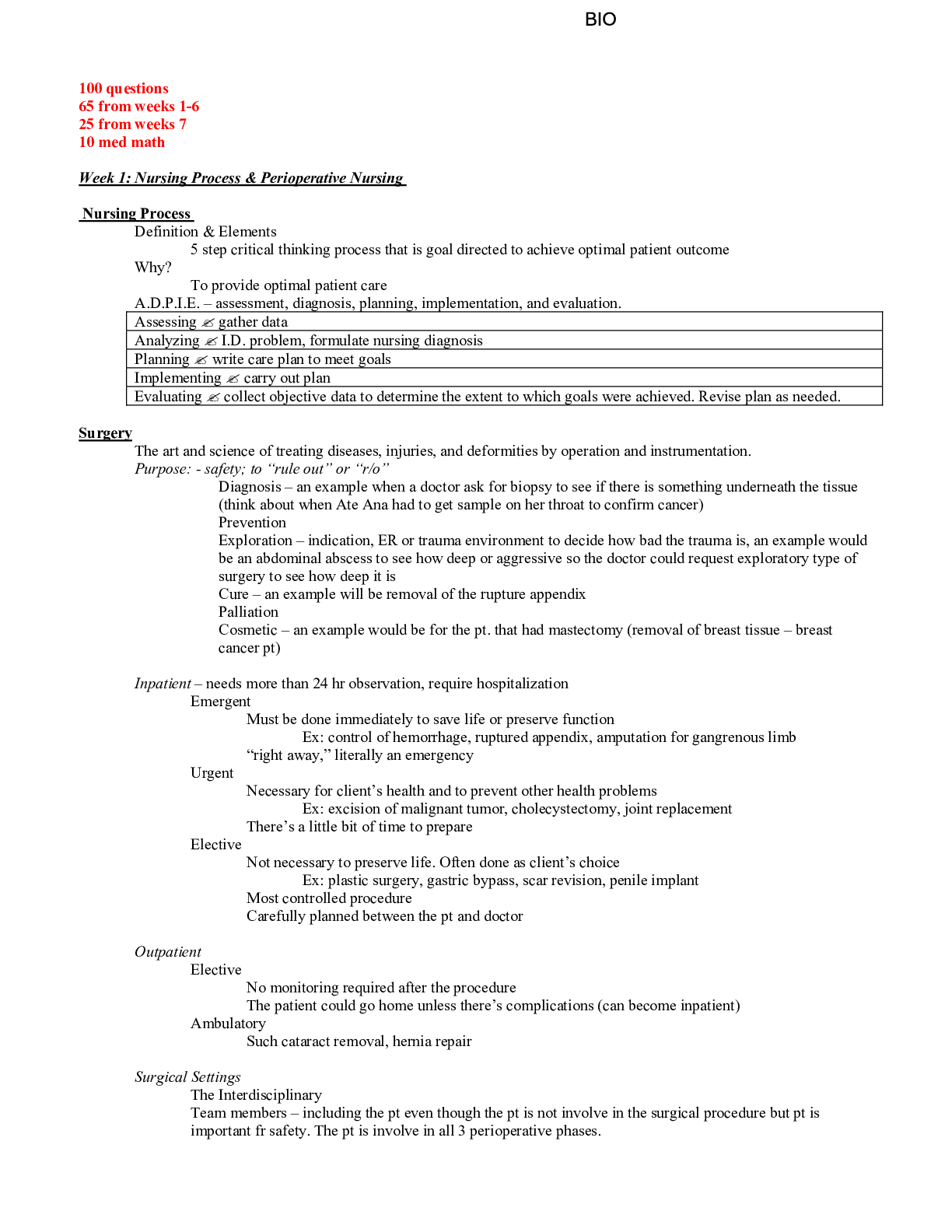
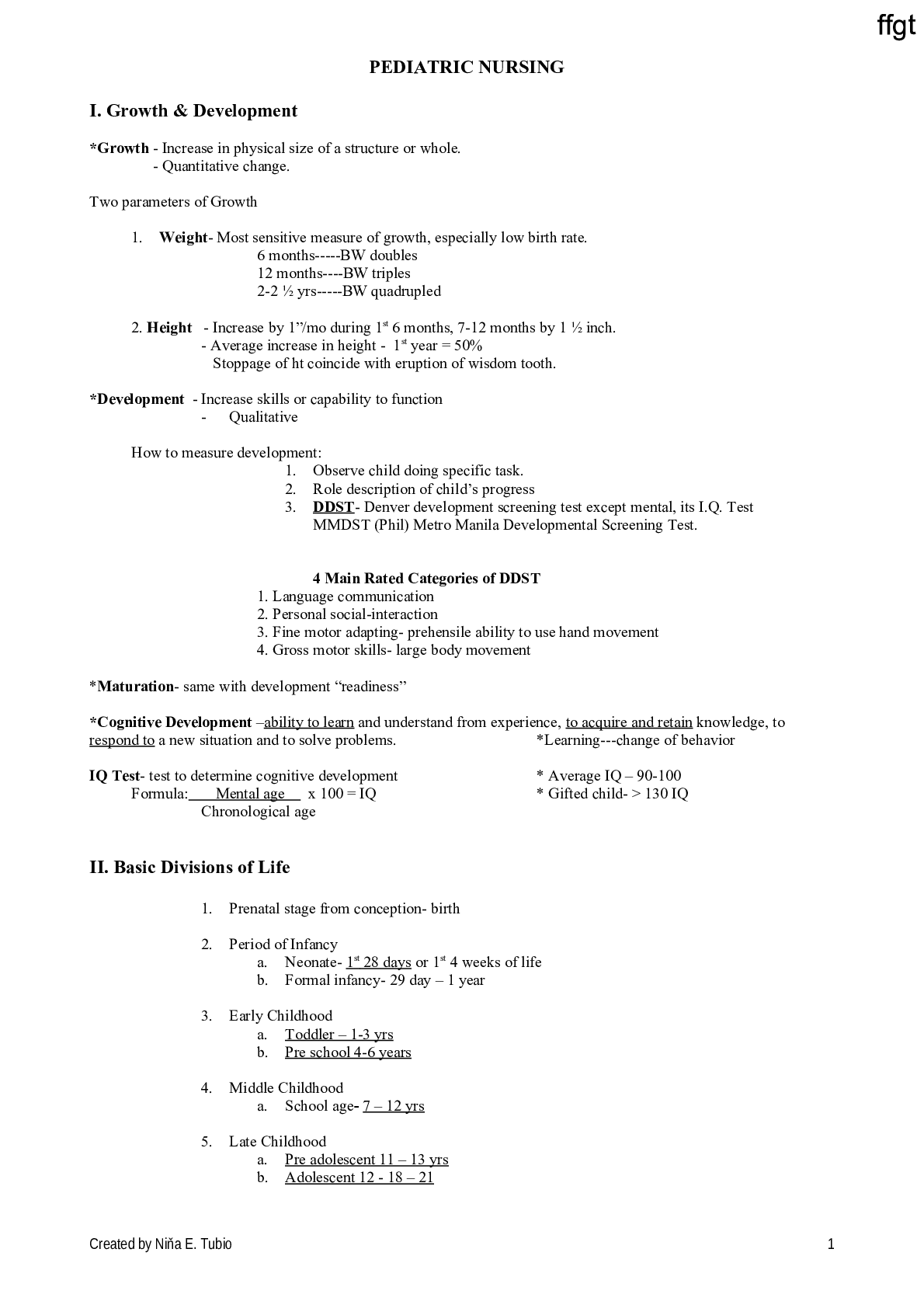

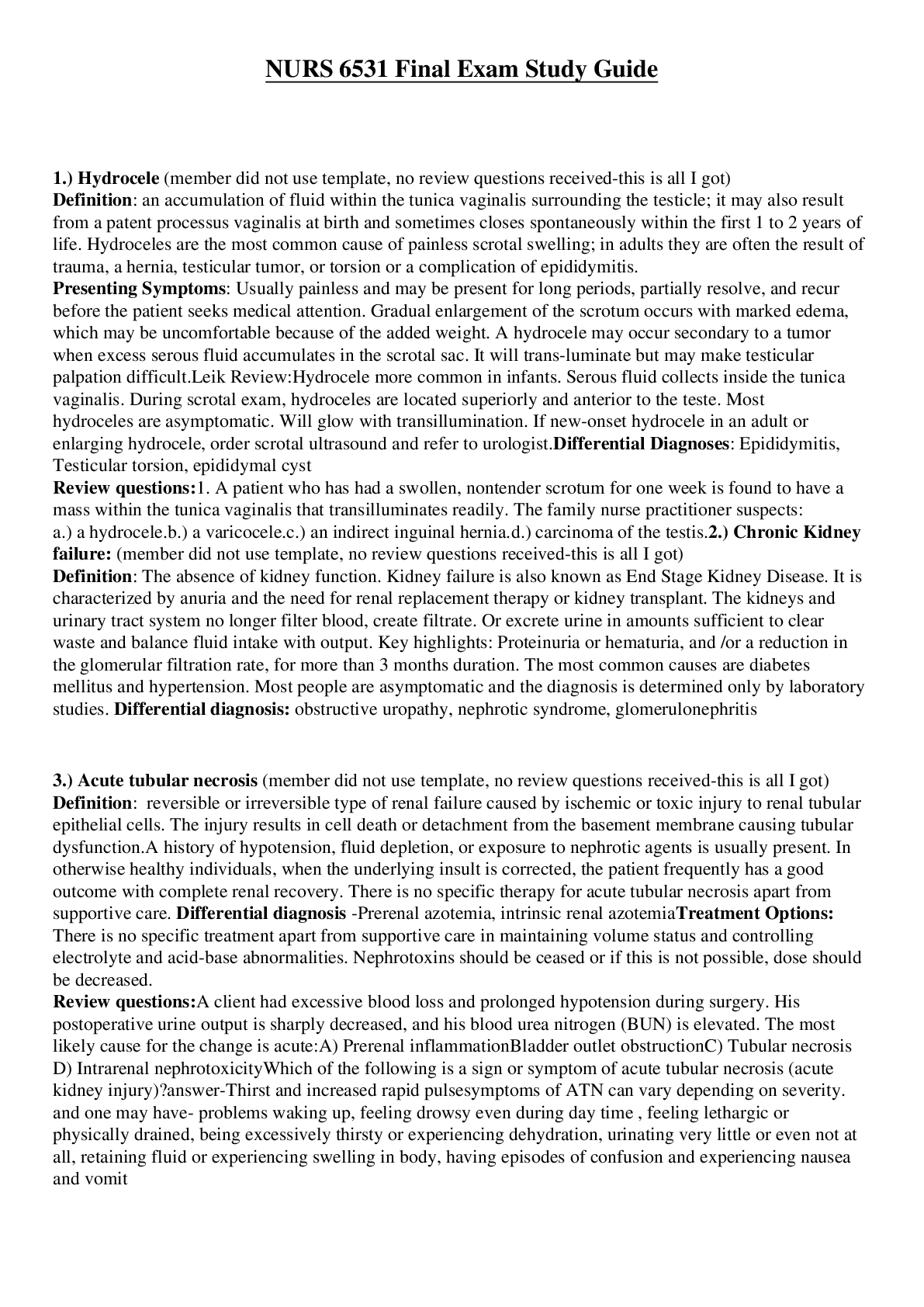
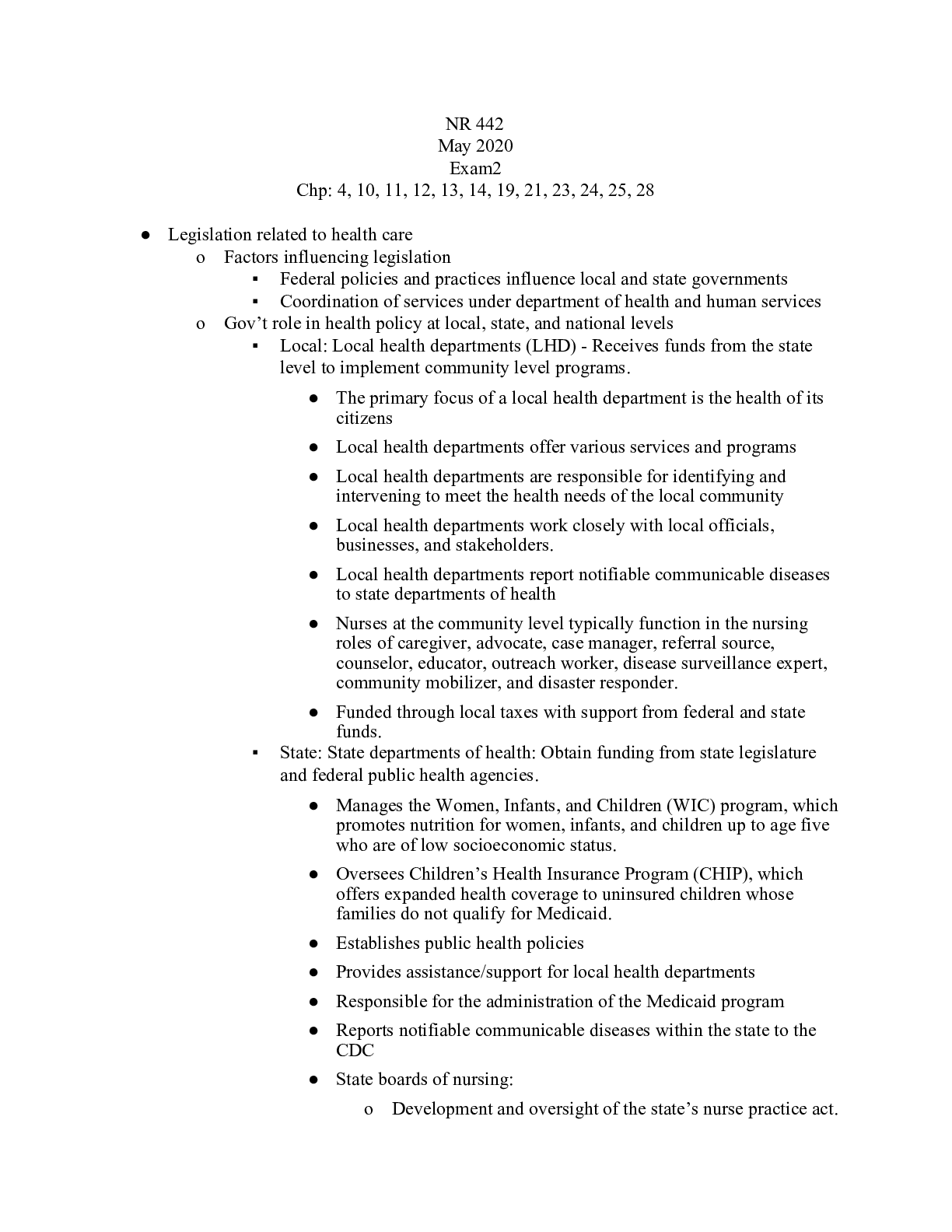

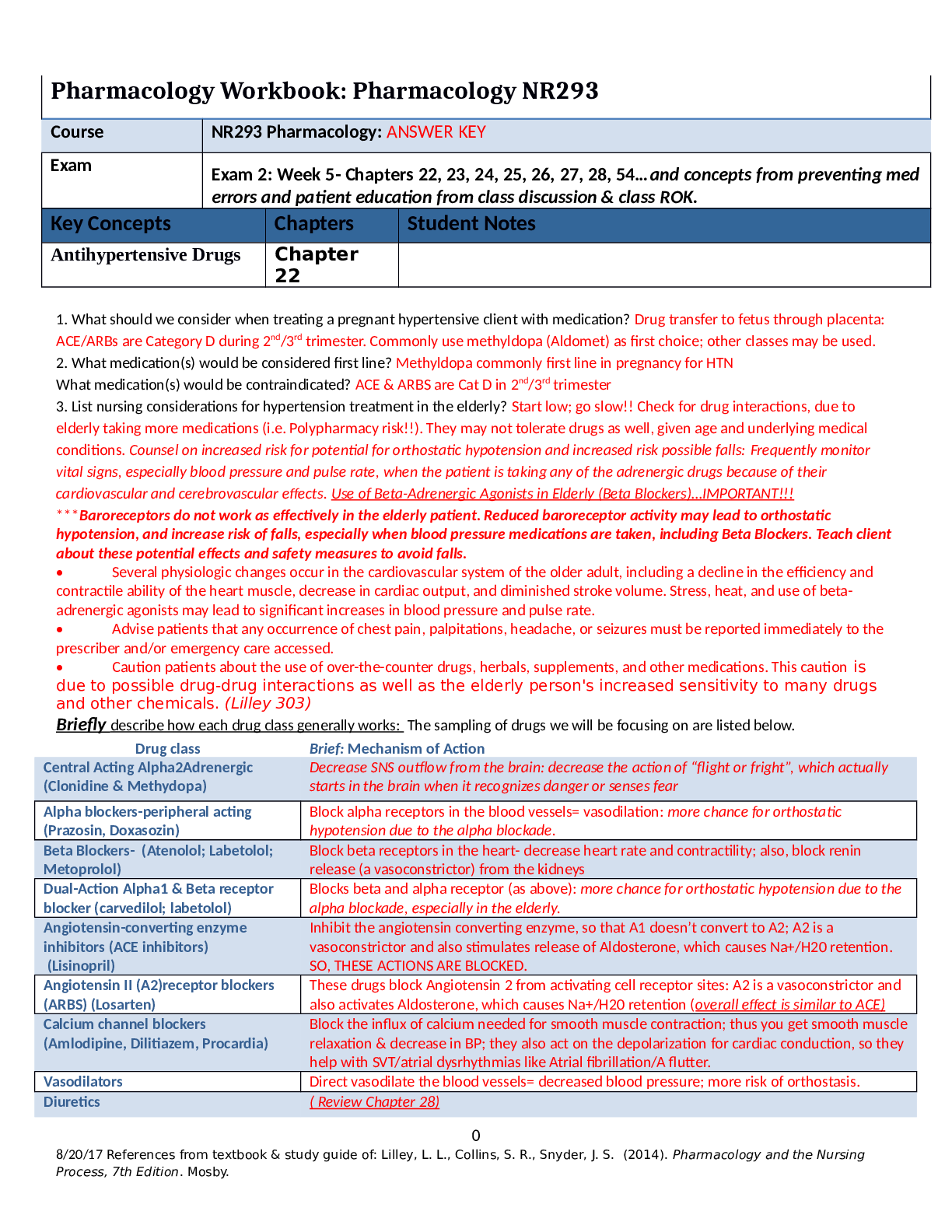
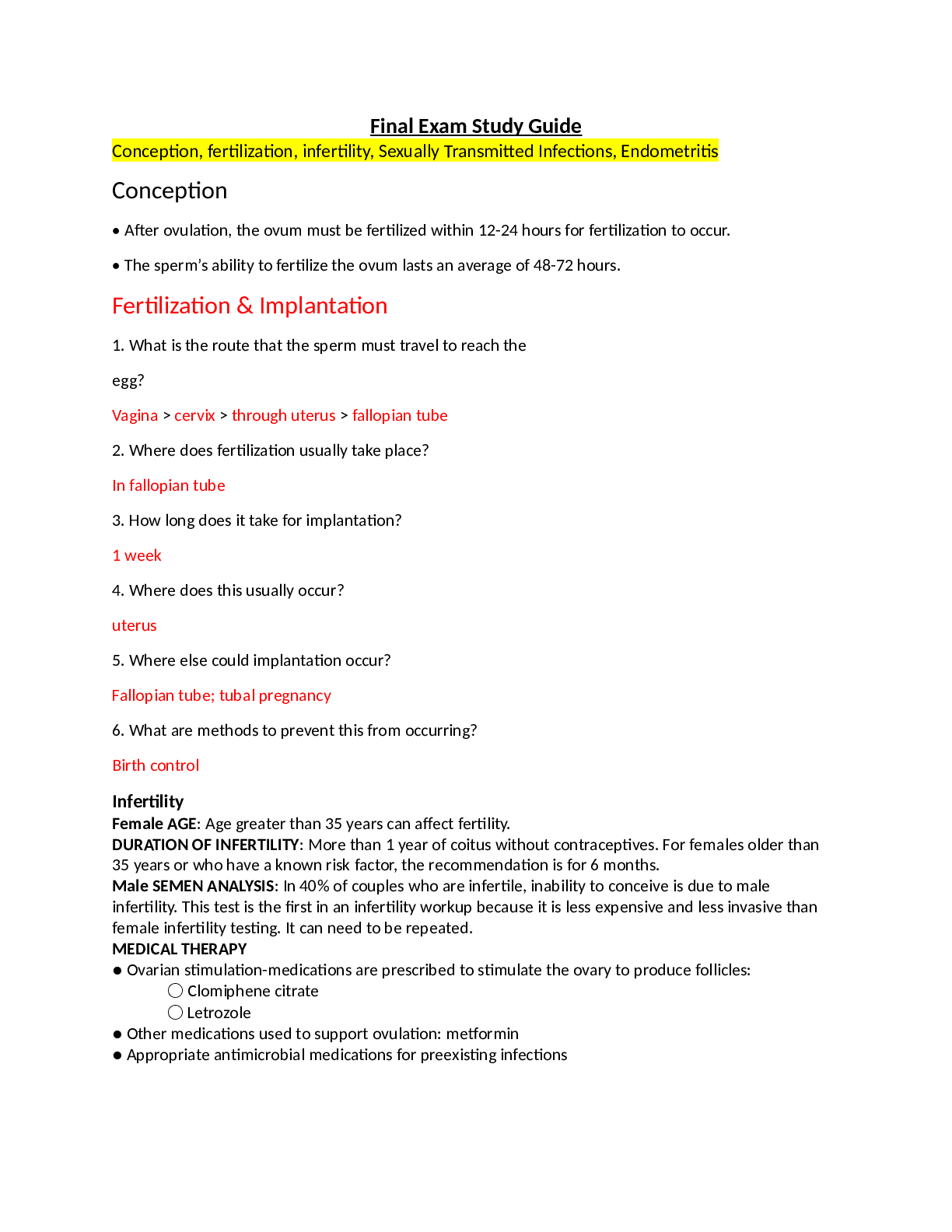
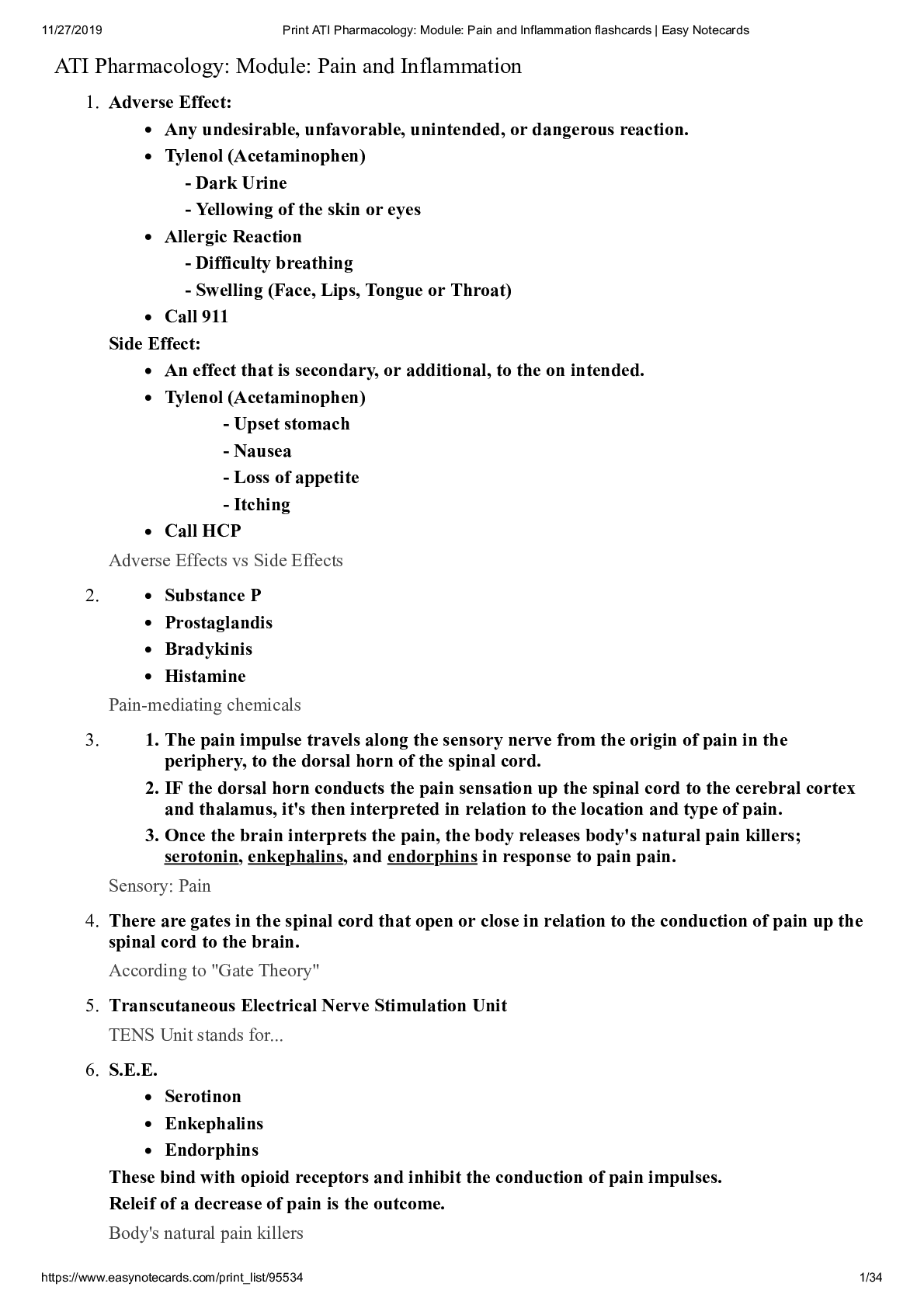



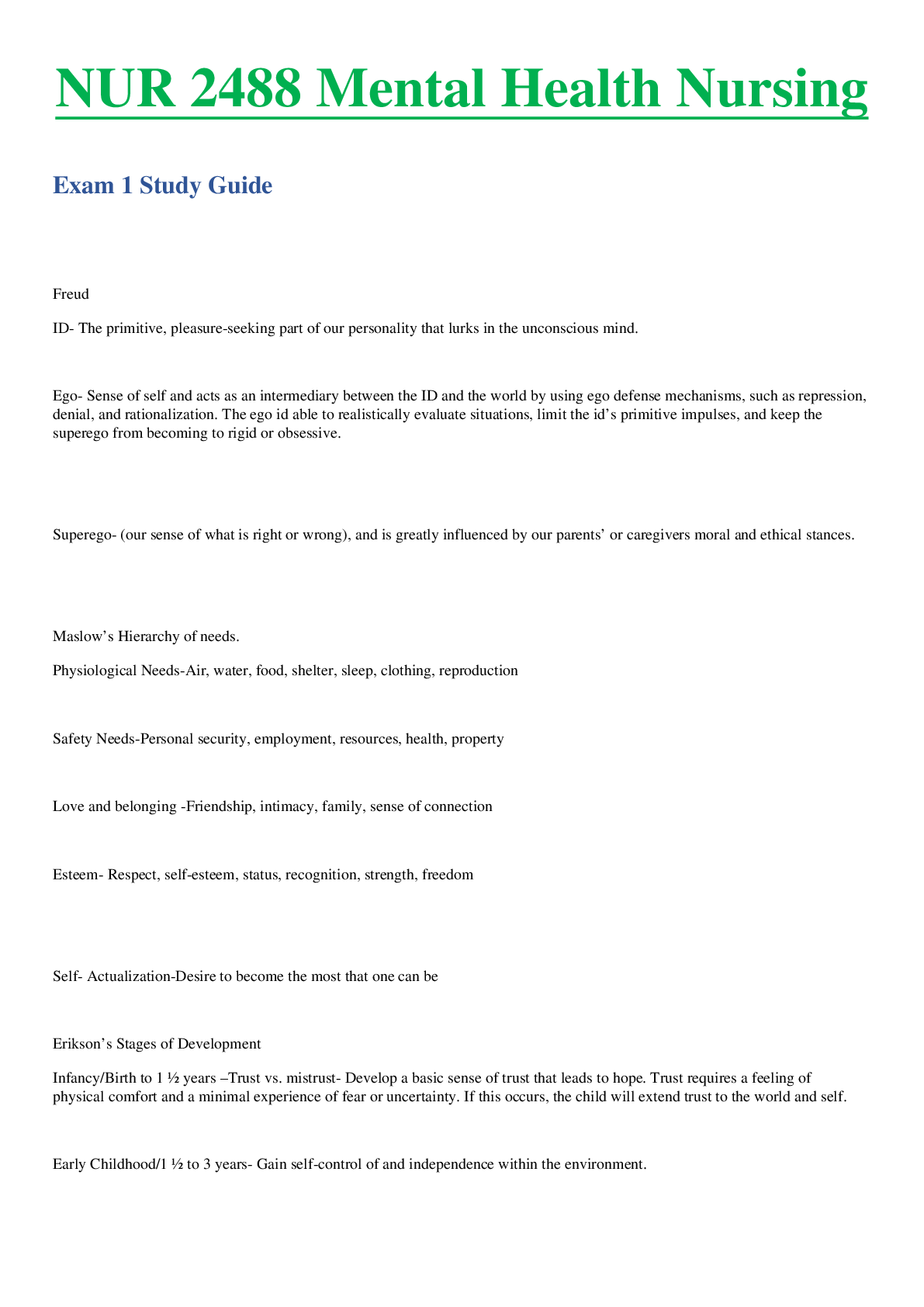
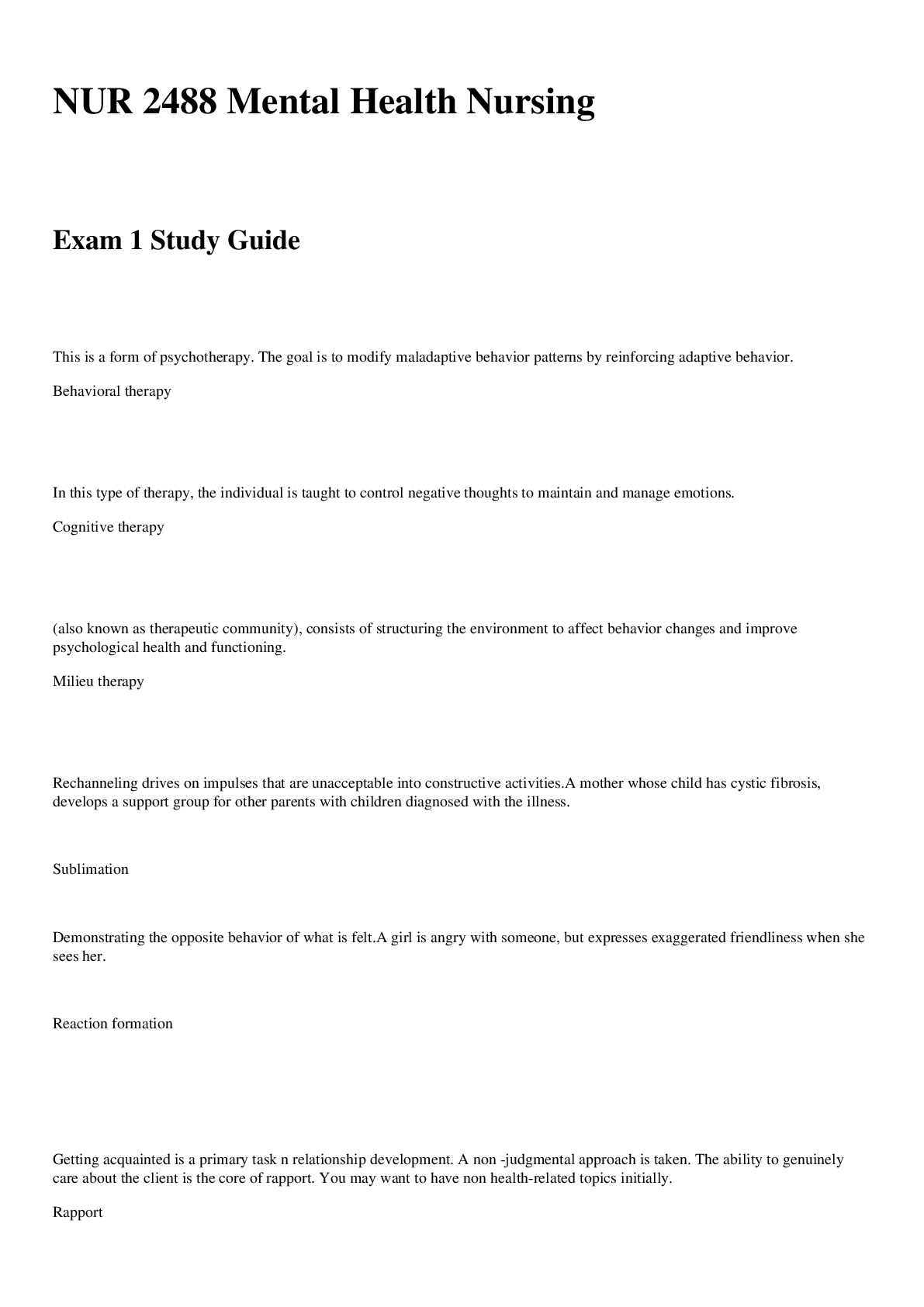
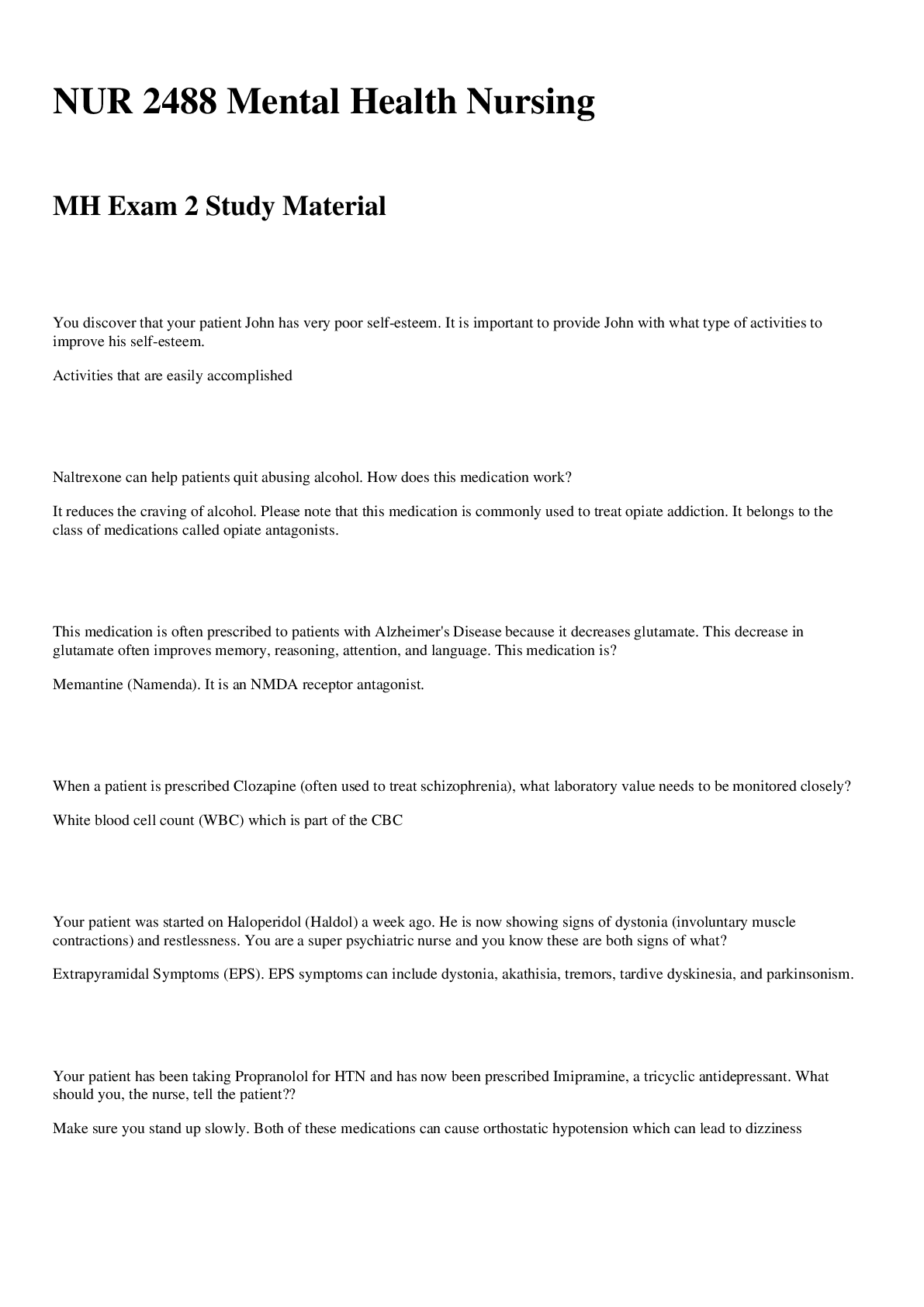

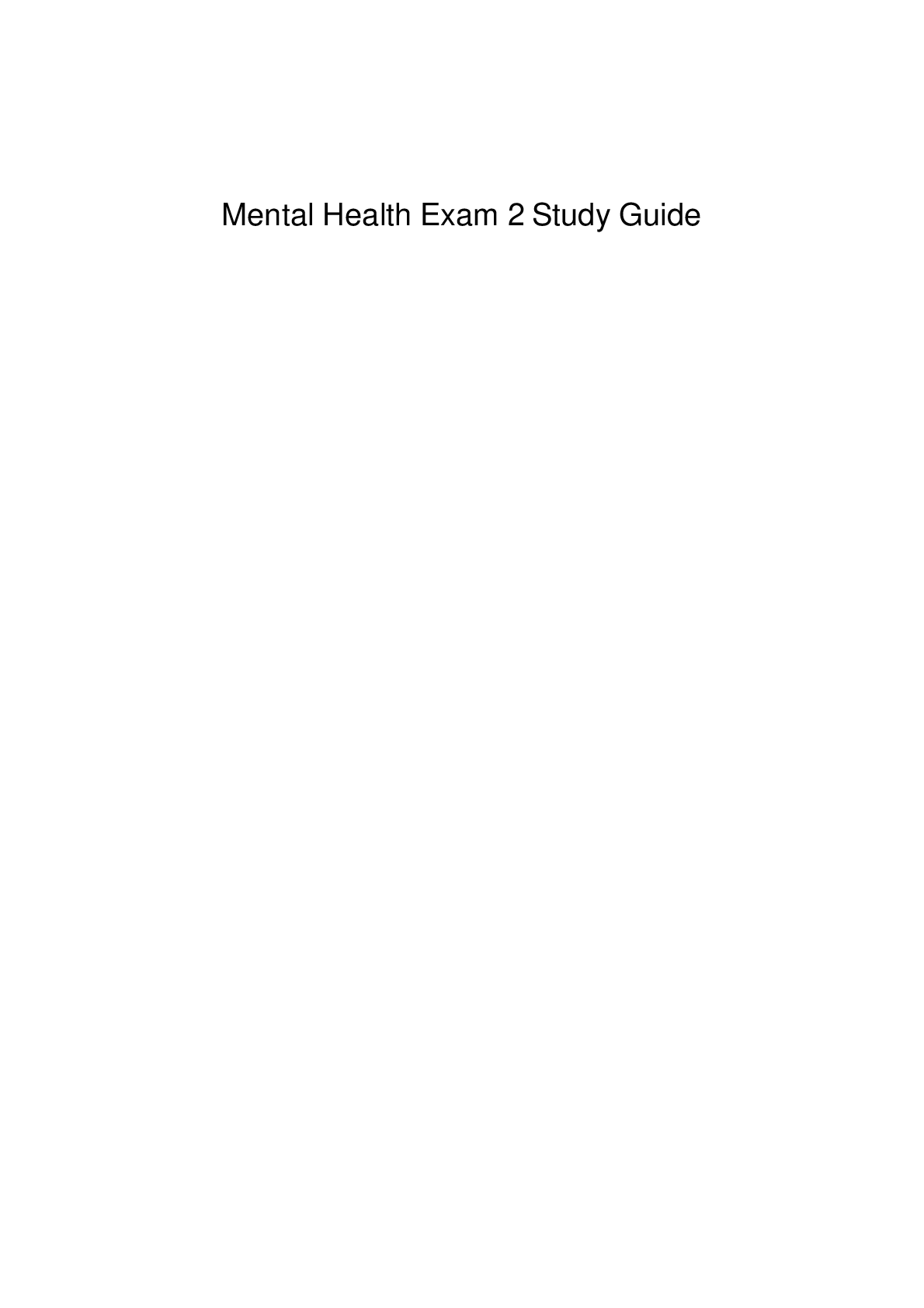
.png)
.png)
